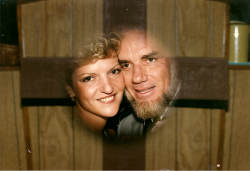If an unbeliever invites you to a meal and you want to go, eat whatever is put before you without raising questions of conscience. But if someone says to you, "This has been offered in sacrifice," then do not eat it, both for the sake of the one who told you and for the sake of conscience.
Thoughts for Today:A few summers ago we had guests staying with us at our vacation home in Northern Idaho. One evening we invited the pastor of our local church to join us for dinner. Our guests had purchased a nice bottle of wine and offered to share it with everyone -- but the pastor refused. He said, "No thanks, I believe as a pastor and a Christian that I shouldn't drink alcohol." As you can imagine, it created somewhat of an uncomfortable moment. Yet, there is no doubt he did the right thing.
Did our pastor friend have as much of a right to drink wine as our guests? Of course he did. However, the reason he didn't was because of his testimony. On the other hand, there are many Christians who are harsh in the way they deal with others because of legality. They say, "I don't do this and you shouldn't either!" It's too bad they don't realize their witness would have far greater impact if it wasn't so full of condemnation. When the motive is love, the approach and the response are altogether different.
Our pastor friend told everyone to go ahead and enjoy the wine even if he did not participate. We chose to save it for another occasion. Why? Because of love and conscience: "...then do not eat it, both for the sake of the one who told you and for the sake of conscience."
Questions to Ponder:Have you been acting in love? Do you beliefs reflect legalism or faith? Do you offer others with dissimilar beliefs your testimony of example or condemnation?





 RSS Feed
RSS Feed
